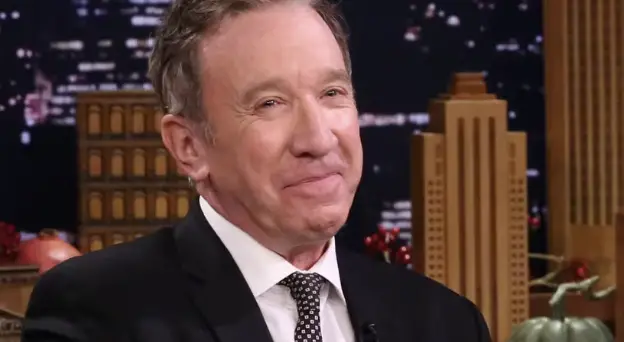Tim Allen has publicly vowed to forgive the man who killed his father, saying he was moved to make the reversal after hearing Erika Kirk declare forgiveness for the accused killer of her husband, conservative activist Charlie Kirk, during a memorial service in Arizona last week. “When Erika Kirk spoke the words on the man who killed her husband: ‘That man… that young man… I forgive him.’ That moment deeply affected me,” the actor wrote on X. “I have struggled for over 60 years to forgive the man who killed my Dad. I will say those words now as I type: ‘I forgive the man who killed my father.’ Peace be with you all.”
Allen’s message followed a widely viewed appearance by Erika Kirk at a public memorial for her husband on 21 September at State Farm Stadium in Glendale, Arizona. In remarks anchored in her Christian faith, she told mourners she forgave the man accused of shooting Kirk on 10 September in Orem, Utah. “My husband, he wanted to save young men, just like the one who took his life,” she said. “That man, that young man, I forgive him. I forgive him because it was what Christ did and it is what Charlie would do.” The line drew a standing ovation inside the NFL stadium, where tens of thousands gathered to remember the 31-year-old organiser and Turning Point USA founder.
Prosecutors in Utah have charged 22-year-old Tyler Robinson with aggravated murder and related counts in connection with the 10 September shooting near Utah Valley University; he is being held without bail as the state signals it will seek the death penalty. A hearing is set in Provo to determine next steps in the case, and court filings cite messages and forensic evidence investigators say link Robinson to the killing. Authorities have not alleged a specific ideological motive in public documents, and the defendant has not entered a plea.
Allen, 72, has long spoken about the 1964 crash that killed his father, real-estate agent Gerald M. Dick, when a drunk driver crossed a median and struck the family’s car. Allen was 11 years old at the time and has described the loss as formative. Biographical references and regional histories place the accident in November 1964; subsequent accounts have noted that the actor was not in the vehicle but that the death reshaped his early life in suburban Detroit. In his post this week, he framed his statement as a hard-won decision after decades of struggle.
